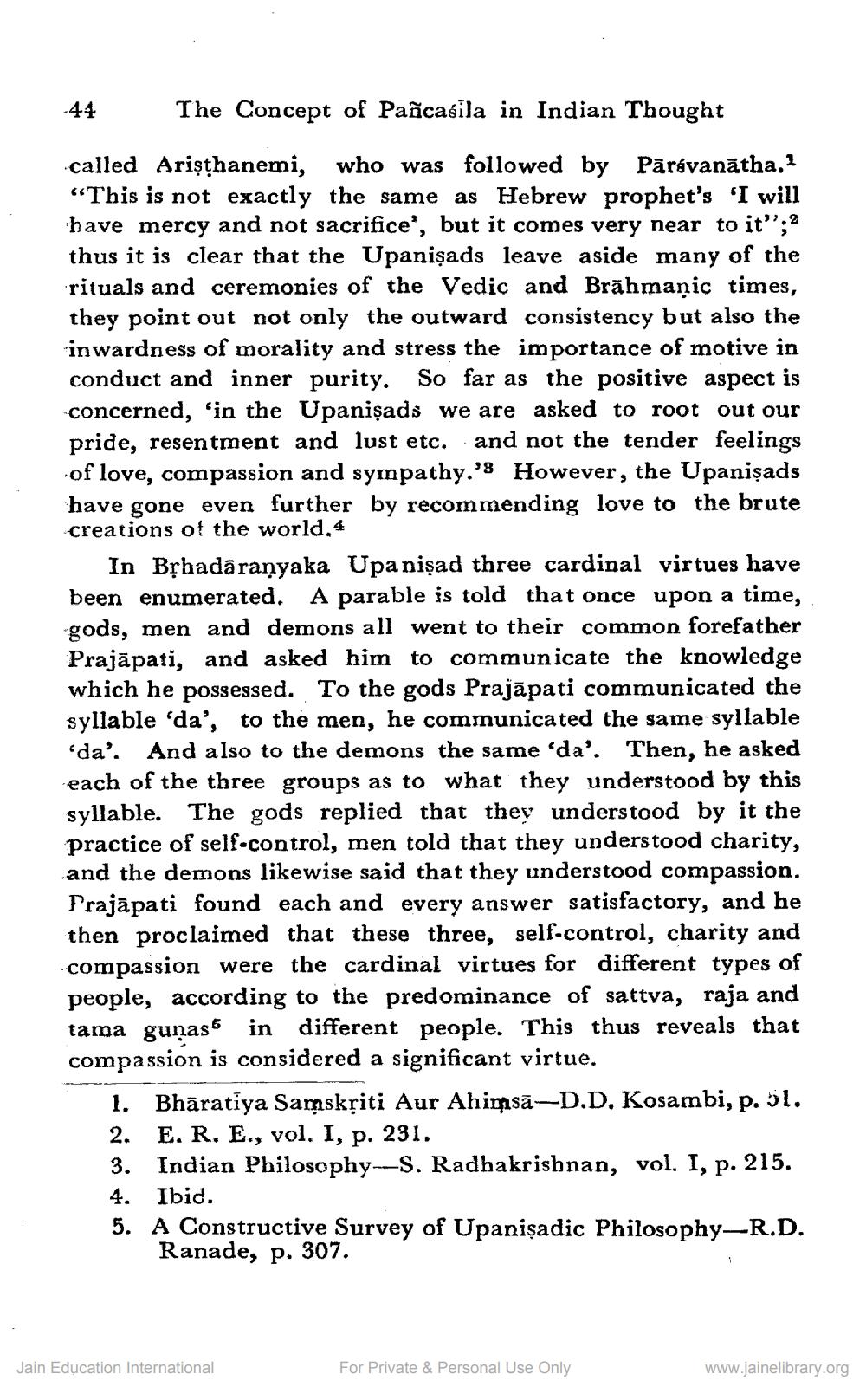________________
-44
The Concept of Pancasila in Indian Thought
called Arișthanemi, who was followed by Pārsvanātha.1 “This is not exactly the same as Hebrew prophet's 'I will have mercy and not sacrifice', but it comes very near to it”;2 thus it is clear that the Upanişads leave aside many of the rituals and ceremonies of the Vedic and Brāhmaṇic times, they point out not only the outward consistency but also the inwardness of morality and stress the importance of motive in conduct and inner purity. So far as the positive aspect is concerned, 'in the Upanişads we are asked to root out our pride, resentment and lust etc. and not the tender feelings of love, compassion and sympathy.'s However, the Upanişads have gone even further by recommending love to the brute creations of the world. 4
In Bịhadāraṇyaka Upa nişad three cardinal virtues have been enumerated. A parable is told that once upon a time, gods, men and demons all went to their common forefather Prajāpati, and asked him to communicate the knowledge which he possessed. To the gods Prajāpati communicated the syllable 'da', to the men, he communicated the same syllable
da'. And also to the demons the same 'da'. Then, he asked each of the three groups as to what they understood by this syllable. The gods replied that they understood by it the practice of self-control, men told that they understood charity, and the demons likewise said that they understood compassion. Prajāpati found each and every answer satisfactory, and he then proclaimed that these three, self-control, charity and compassion were the cardinal virtues for different types of people, according to the predominance of sattva, raja and tama gunas in different people. This thus reveals that compassion is considered a significant virtue.
1. Bharatiya Samskṣiti Aur Ahimsa-D.D, Kosambi, p. 51. 2. E. R. E., vol. I, p. 231. 3. Indian Philosophy-S. Radhakrishnan, vol. I, p. 215. 4. Ibid. 5. A Constructive Survey of Upanişadic Philosophy-R.D.
Ranade, p. 307.
Jain Education International
For Private & Personal Use Only
www.jainelibrary.org




